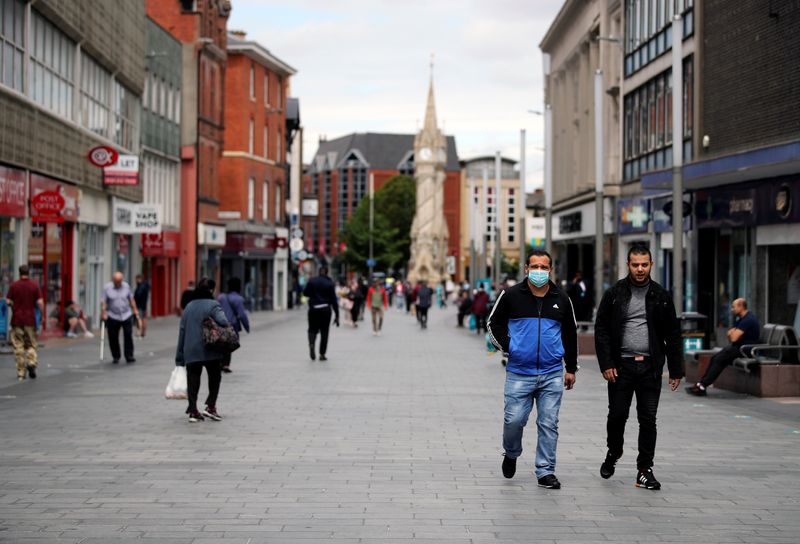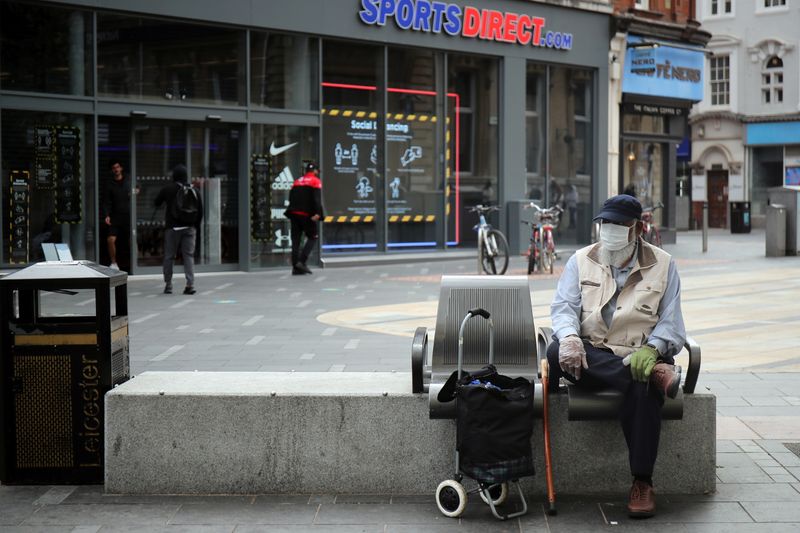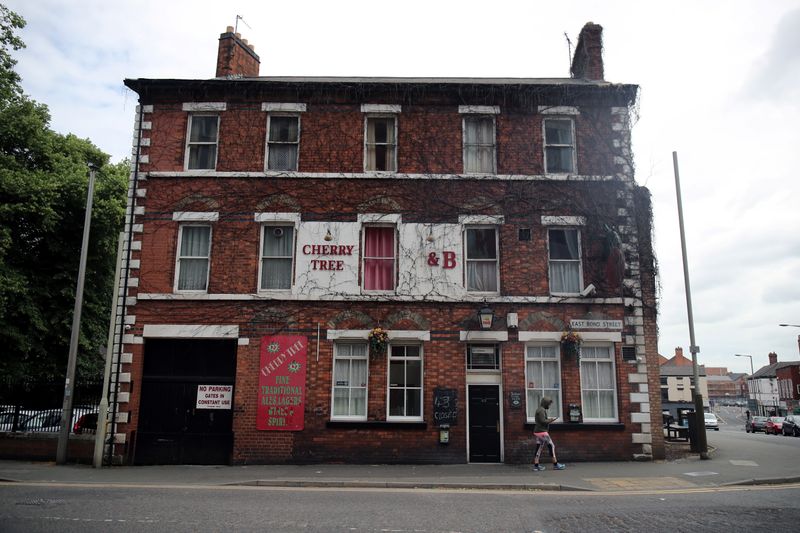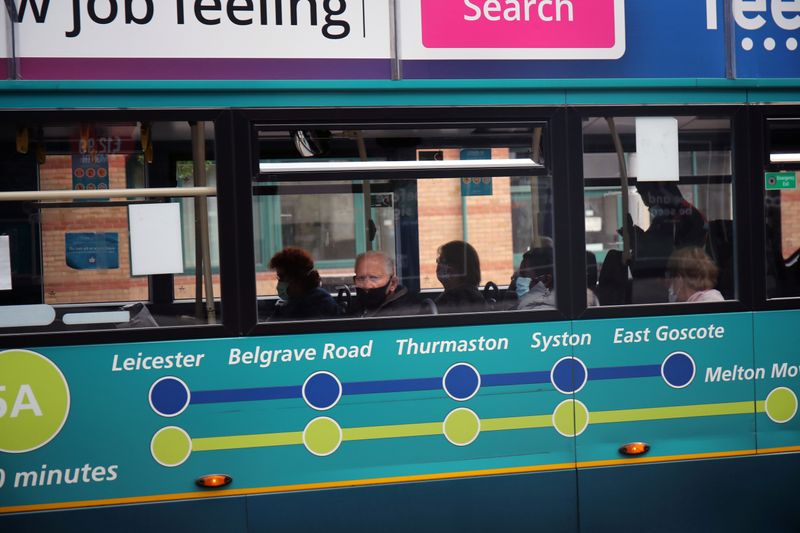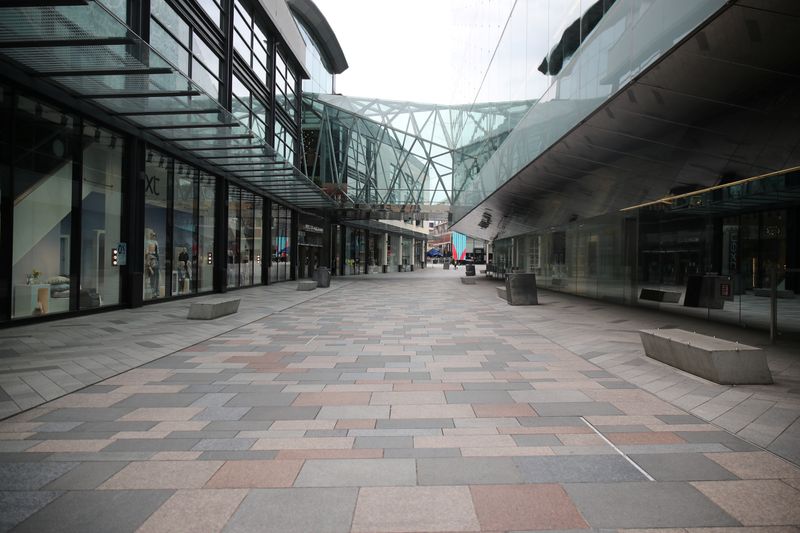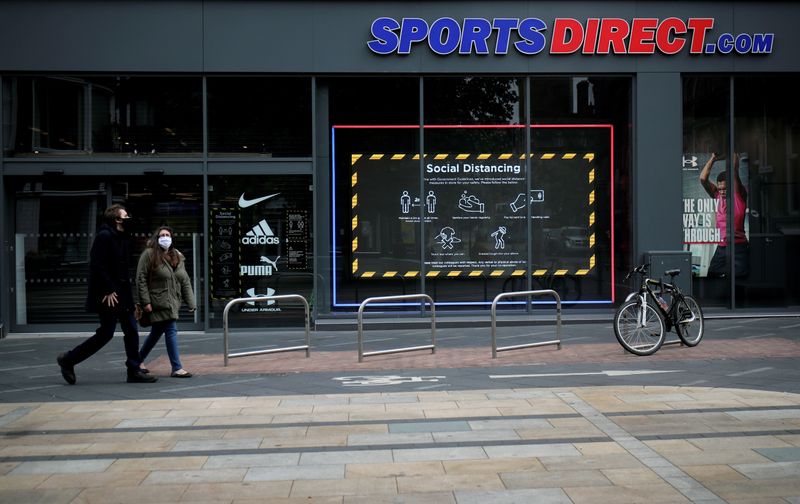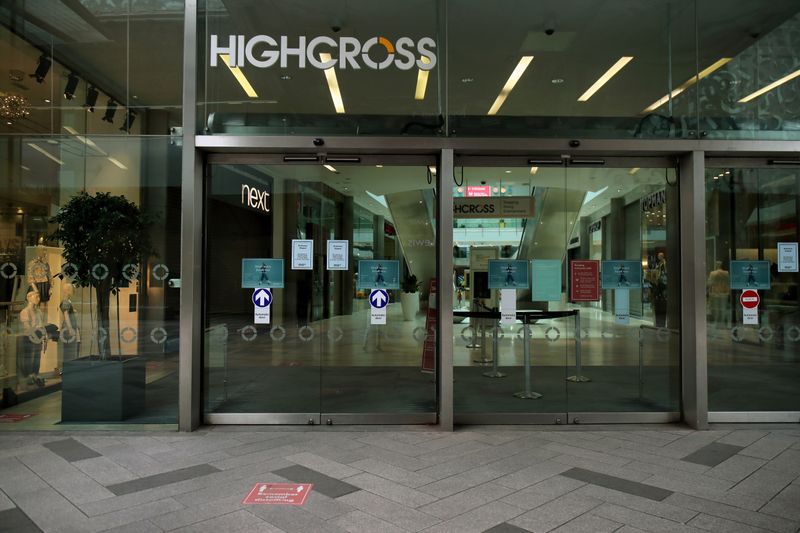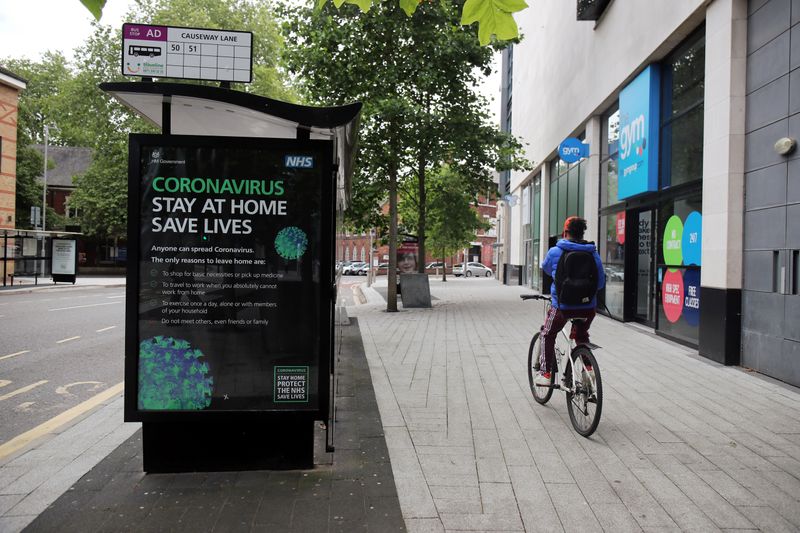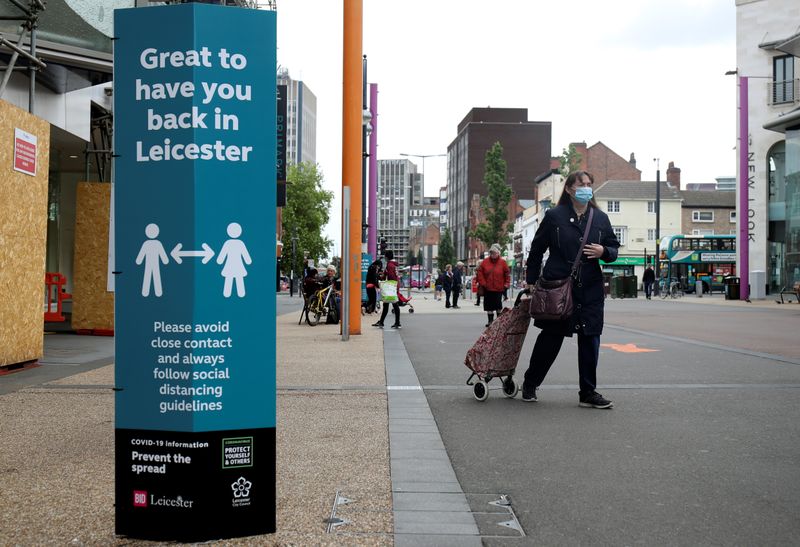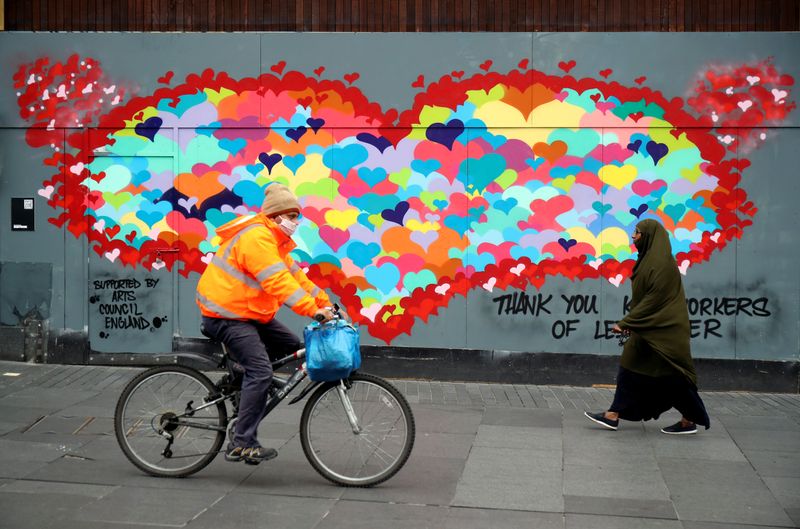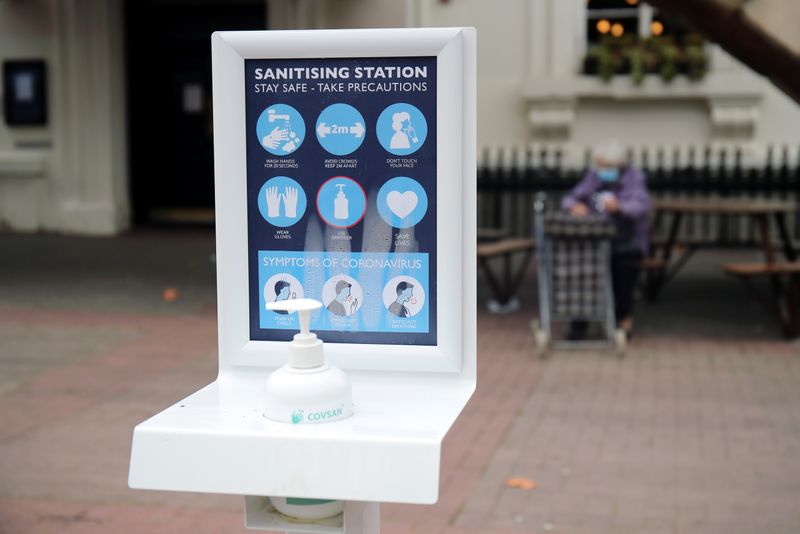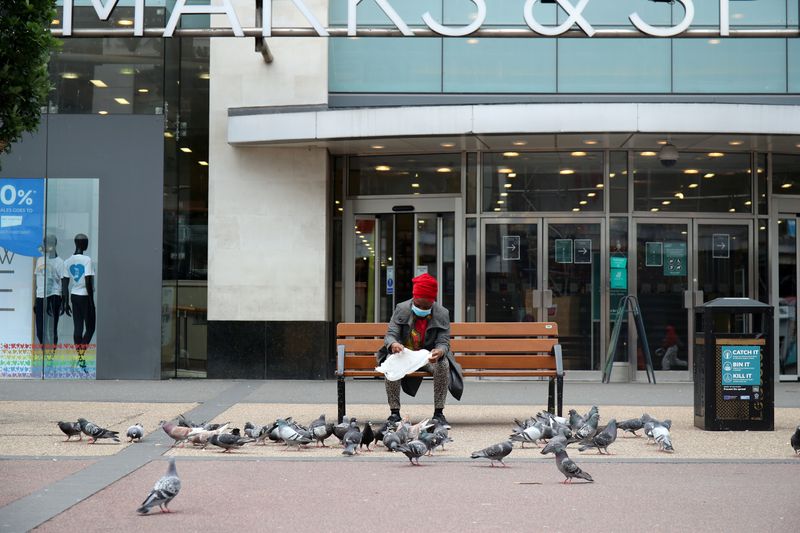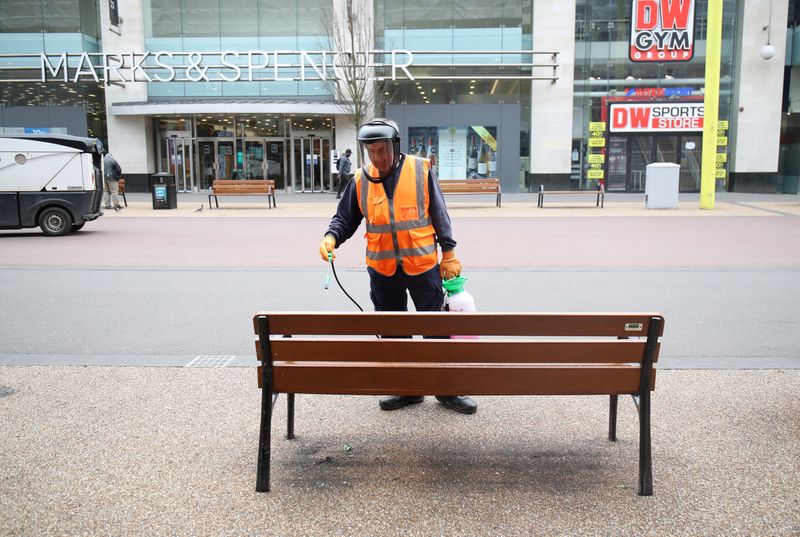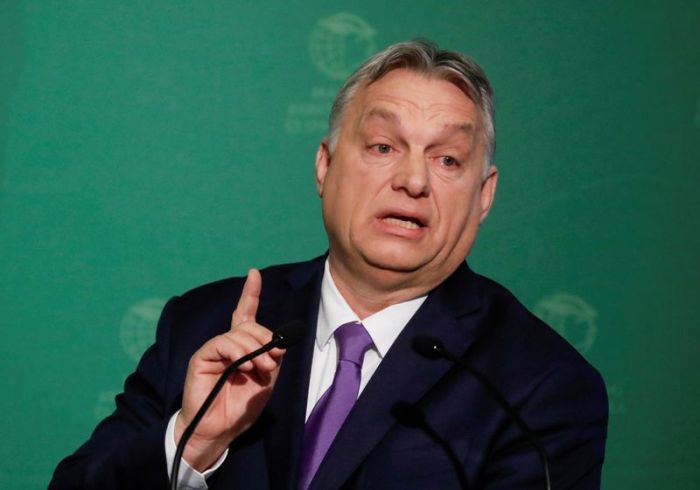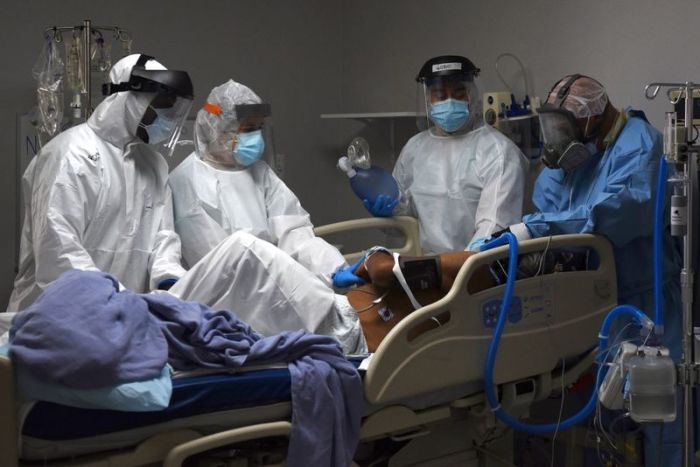LEICESTER, England (Reuters) – Britain has imposed a stringent lockdown on the English city of Leicester following a local flare-up of the novel coronavirus, overshadowing Prime Minister Boris Johnson’s attempts to nudge the country back to normality.
The United Kingdom has been one of the world’s worst-hit areas, with more than 54,000 deaths in confirmed or suspected cases, though infections have waned and many restrictions are to be lifted across England from Saturday to revive the economy.
But the authorities were forced to take action in Leicester, a city of around 330,000 people, where the seven-day infection rate was three times higher than the next-worst city. Leicester, in England’s eastern Midlands, accounted for 10% of all positive cases in England in the past week, the government said.
“It’s depressing,” Stuart Towers, landlord of the Market Tavern pub told Reuters. “We were all looking forward to opening Saturday and the next thing you know that’s it. What do we do now?”
The city’s lockdown will affect almost 4,000 retailers, 239 restaurants, 182 pubs, 26 hotels and five cinemas, according to real estate adviser Altus Group. Many businesses would have been preparing to open on Saturday for the first time since March.
The Leicester lockdown drew attention away from a speech by Johnson in Dudley, 50 miles away, where he was outlining his plans to boost the economy after the lockdown.
“I thank the people of Leicester for their forbearance,” he said in the speech. “I always said there were going to be local flare-ups and that we would deal with them locally, and that’s what we are doing in Leicester and we’ll do it elsewhere.”
SCHOOLS CLOSE
Health Minister Matt Hancock said the government was still analysing the exact reasons behind the rise in Leicester. The local lockdown would require legal changes with new measures enforced by police, he said.
Leicester mayor Peter Soulsby said it had been hard to get details from the government including precisely what areas the lockdown would cover.
Schools in the city will close from Thursday after an unusually high incidence of infections in children.
Residents said people had been widely flouting social distancing and other measures when the government first began easing rules two weeks ago.
“I think if people listened and stayed at home, then we wouldn’t be here,” said Bob Sharma, a bank manager.
Pawn broker Arun Mortala said people had not been wearing masks or keeping distance when back on high streets.
“I was expecting that this was going to happen,” he said.
(Reporting by Guy Faulconbridge and Kate Holton; Writing by Michael Holden; Editing by Andrew Cawthorne and Peter Graff)

